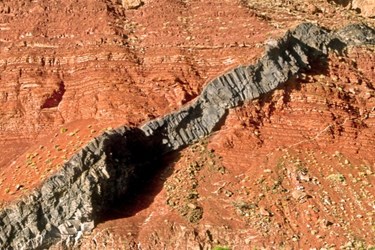Fracking Demand Creates Rural Water Lines
Natural gas companies, which require massive amounts of water for fracking, are trying to make friends in the water sector. These alliances may hold benefits for water customers.
“Some gas companies working in the Marcellus and Utica shales are paying to extend public water lines into rural areas to provide the millions of gallons needed for hydraulic fracturing, or fracking, of their wells, and in some cases building treatment plants as well,” the Pittsburgh Tribune-Review reported.
Southwestern Pennsylvania Water Authority is one example. The authority partnered with Vantage Energy this year on a $30 million project constructing water mains and expanding a water treatment facility. Jack Golding, a manager for Southwestern, explained the arrangement.
“It's a win-win-win,” he said, per the report. “For us, this is a good deal. We get lines extended that would probably never get extended, and it gives us the ability to keep residential rates low.”
Pennsylvania American Water has also explored partnerships with the energy industry. Senior Vice President Kathy Pape explained that such pairings initially raised questions. “There were concerns that the bad reputations of shale gas drillers would rub off on us. We're very protective of our reputation,” she said.
“Pape said Penn American now provides water to 10 percent of shale wells statewide and 75 percent of those in Butler County, the eighth-highest-producing county in the state with 282 shale wells,” the report continued.
For water companies, the benefits of working with natural gas companies may be appealing at a time when rural water utilities are struggling to find funding to upgrade and perform routine repairs on their systems.
Compared to cities, water infrastructure is often more expensive in rural areas because people are spread out. Small community water systems (serving under 3,300 people) will require $64 billion over the next two decades to update water infrastructure, according to an EPA report submitted to Congress.
Fracking opponents say the amount of water used by shale gas companies is dangerous in an era of water scarcity and drought. "Studies say that fracking consumes less than 1 percent of the total water used [in Texas], far less than agriculture or even watering lawns. But in some drilling hotbeds like Dimmit County, the proportion of water used for fracking has reached the double digits and is growing along with the oil boom," The Texas Tribune reported.
All of the latest fracking stories can be found at Water Online’s Produced Water Treatment Solutions Center.
Image credit: "Hakatai Shale at sunset," Richo.Fan © 2008, used under an Attribution 2.0 Generic license:https://creativecommons.org/licenses/by/2.0/
Copyright © 1996 - 2015, VertMarkets, Inc. All rights reserved. To subscribe or visit go to: http://www.wateronline.com
http://www.wateronline.com/doc/fracking-demand-creates-rural-water-lines-0001

